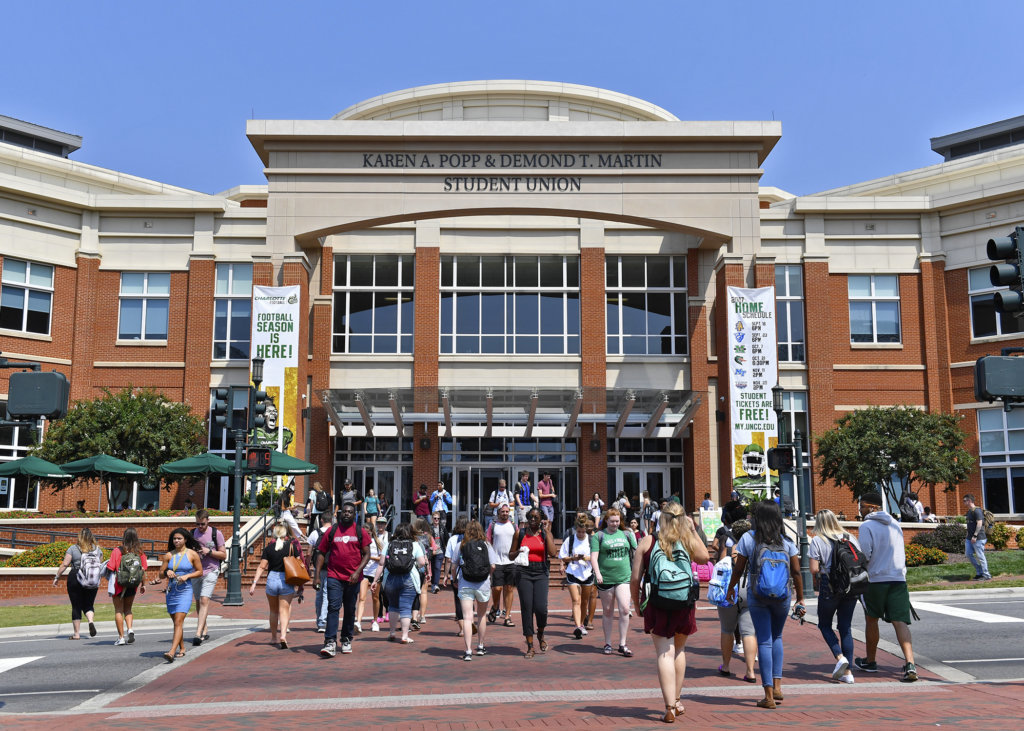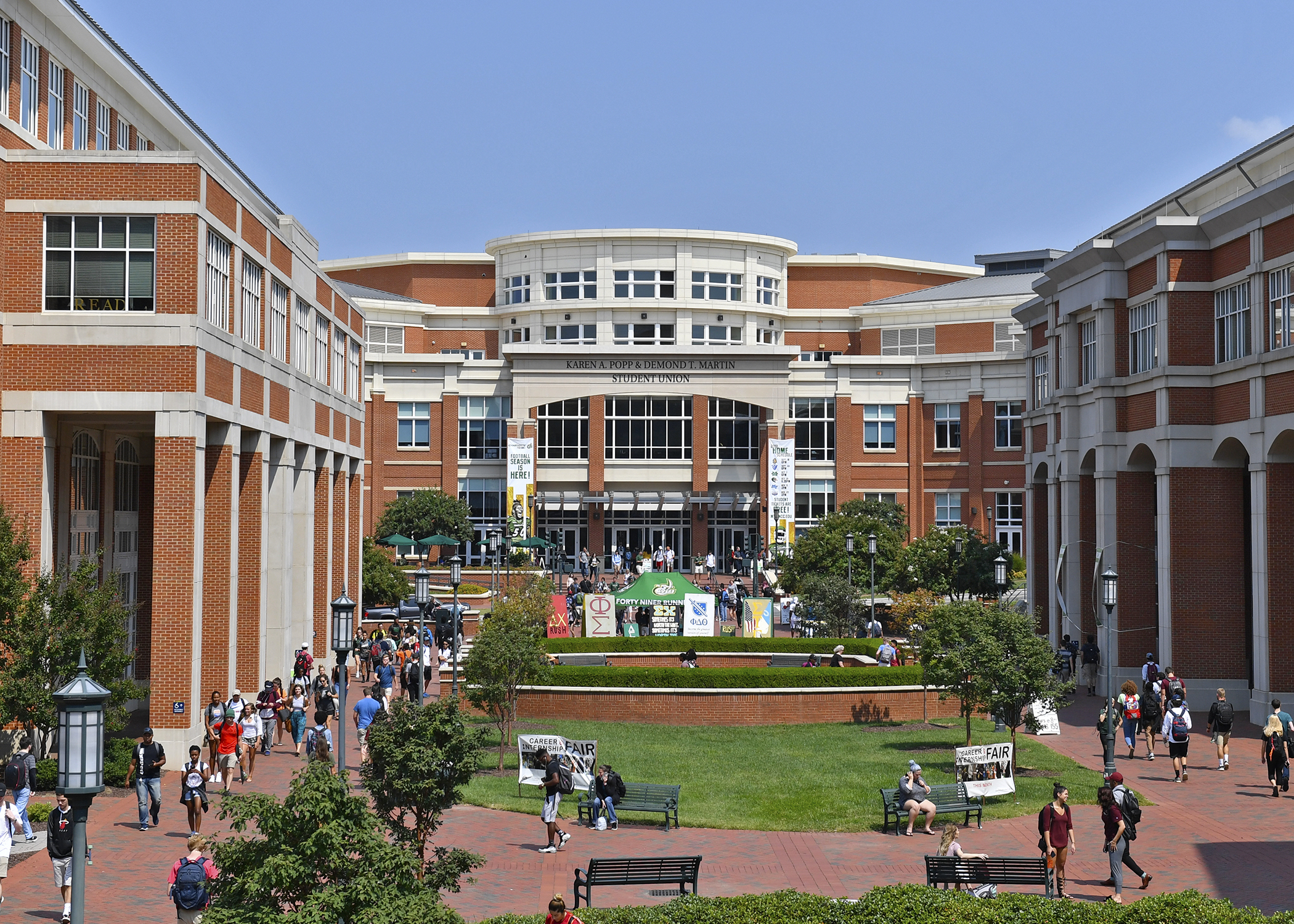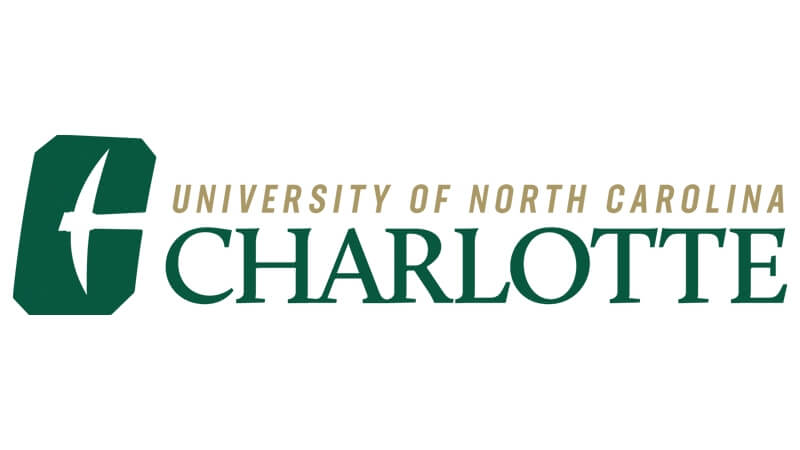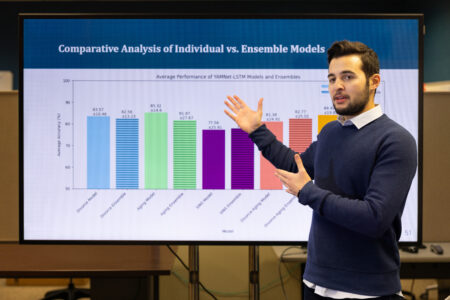Driven and accomplished — these are some common characteristics shared by students and graduates from the University of North Carolina at Charlotte (UNC Charlotte). With over 30,000 students, the university has a winning formula in attracting and retaining emerging talent, a credit to its range of expertly-taught degree programmes across undergraduate and graduate levels.
This is particularly apparent in its Department of Electrical and Computer Engineering (ECE). Here, students are active learners, and have multiple options for completing their degrees.For instance, Master’s students may select the thesis option to take charge of their education to pursue groundbreaking and innovative projects which broaden their future opportunities in many exciting ways.
Take Benjamin B. Rhoades. Having pursued a BS, MS, and PhD in Electrical Engineering at UNC Charlotte, Rhoades knows the department’s excellent standards well, particularly in its engaging and relevant range of programmes on offer.
“The courses that I took that interested me most were the embedded systems course that involved hands-on experimentation with a developmental software and companion board, and the introduction to robotics class that allowed us to learn advanced techniques that are applicable in today’s ever evolving automated landscape,” he shares.

At UNC Charlotte, students can choose to pursue innovative and ground-breaking projects through a thesis option. Source: UNC Charlotte
When the time came for Rhoades to pursue a research project, he chose to focus on a pathway to an autonomous vehicle and smart infrastructure future. “The basic concept for my thesis work was how a modern advanced vehicle, such as a Tesla, communicate with older legacy vehicles still occupying our roadways,” he says.
Rhoades was guided by the department’s prestigious and expert faculty members, all of whom have contributed — and continue to contribute — to a wide range of focus areas within electrical and computer engineering. This helps to ensure that programmes remain up-to-date with advances in their respective fields, giving students a competitive edge in their future careers.
It’s learning from such lecturers and professors, Rhoades says, that has set him up for a “long and enduring career in the electrical engineering discipline.” “I have had a few jobs since graduating and each of those positions had required me to do my own independent research into topics I was not familiar with,” he says. “The tools and techniques taught by the ECE department allowed me to compartmentalise and digest complex information.”
Adithya Shetty, originally hailing from India, completed his MS in Electrical Engineering with the thesis option. His focus was to complete his MS and specialise in firmware and embedded systems, and as such, he structured his education around this goal. He took core courses in embedded systems, wireless networks, and computer architecture, among others.

Students at UNC Charlotte learn from accomplished professors. Source: UNC Charlotte
Shetty’s thesis project revolved around a pneumatic valve error detection project which was funded by Bürkert, a valve manufacturing company based in Germany. It was working with bright minds such as Professor and Chair of the Department Dr. Asis Nasipuri on the project, however, that acted as an invaluable springboard to his career.
“The courses I chose helped me find my first job as an embedded software engineer,” he says. “What helped me on the job was the hands-on experience I gained under Dr. Nasipuri during my project. The skills I developed during the project proved extremely helpful when I started working in the industry.”
A common outcome of such collaborations is that many students build meaningful relationships with faculty, which often opens up a multitude of opportunities after they graduate. This was the case for Adam C. Harris, who pursued an undergraduate degree in Electrical Engineering Technology, before progressing to an MS and PhD in Electrical Engineering at UNC Charlotte.
“During my last year of my PhD, Dr. Conrad had recommended me for a fellowship (teaching adjunct at my current institution),” he shares. “Having experience in both Engineering and Engineering Technology allowed me to articulate the differences of these programmes to other advisors at my institution as well as to my students.”

UNC Charlotte is home to a diverse community of students, making for a rich and varied learning environment. Source: UNC Charlotte
Harris centred his MS and PhD around the study of autonomous robots, drawing from the excellent academic support afforded to him by the UNC Charlotte faculty. Through his efforts, he was awarded “Outstanding Research Assistant” for the Department of Electrical and Computer Engineering in 2013. Today, he works as a full-time Department Chair of Computer, Electrical, and Electronics Engineering Technology at the Central Piedmont Community College, a feat he credits to his education at UNC Charlotte.
It’s undeniable that UNC Charlotte is paving the way in producing capable, career-ready graduates — but for most, the experience of engaging with the university’s broad and varied community is, perhaps, the most cherished of all. “Being part of a cohort of students from diverse backgrounds in a world class institution like UNC Charlotte offered a lot of exposure and helped me develop overall skills that gave me confidence to do well and progress in my career,” says Shetty.
Shetty, Harris, and Rhoades are merely three of many UNC Charlotte graduates who look back with fond memories — and, with all they have achieved and experienced during their university years, it’s not difficult to see why. It’s a credit to UNC Charlotte’s ability to draw in a host of intelligent, insightful students — an accomplishment that will likely not be dwindling anytime soon.
Follow University of North Carolina at Charlotte on Facebook, Instagram, Twitter, and YouTube












